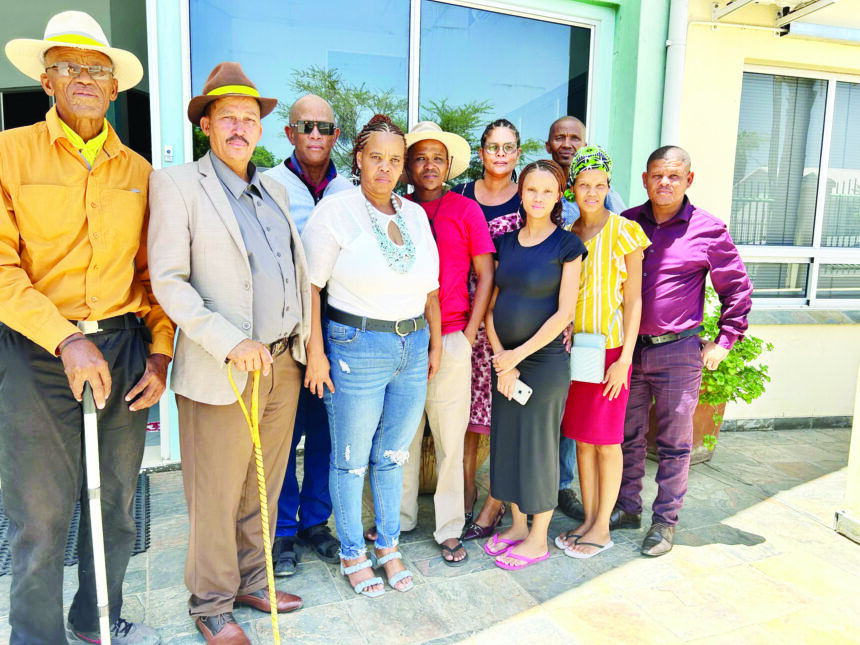MALTAHÖHE – The dust has refused to settle in the Hardap region, where traditional authorities and factions are on a warpath over a concession pact.
A community in the region has expressed mixed feelings over the recent concession awarded for the Farm Arbeit campsite.
It includes a related shuttle service to operate in the protected Namib Naukluft National Park.
There is opposition to the Naukluft deal, with some individuals already sending desist letters through lawyers.
There exists another faction which views this situation as a potential opportunity for the region.
The optimists argue that embracing this agreement may foster investment and development initiatives which will benefit local communities.
Gaob David Hanse of the !Khara-Khoen Nama sub-clan urged locals to cease blocking development projects.
He said their objections lack validity.
In an interview with New Era, he emphasised the potential benefits of the concession.
“With this concession, we believe this can make a difference. I urge my children to stop mixing and forgetting they are trying to kill our community.
They should stop listening to outsiders,” Hanse pleaded.
In a letter dated 20 November 2024, representatives from the Witbooi Traditional Authority expressed dissatisfaction with the concession process, citing insufficient consultation.
They emphasised the importance of communal rights and participatory governance for sustainable resources’ management.
The project site in the Namib Naukluft National Park is situated in the Maltahöhe district.
It involves creating a campsite, equipped with restrooms and bathing facilities for visitors, alongside a shuttle service for short-distance transport needs.
The community seeks clarification on the criteria used to select the concessionaire.
They stressed that the absence of community consultations promotes a lack of transparency, and can lead to mistrust between communities and the government.
The 2007 Policy on Tourism and Wildlife Concessions on State Land stipulates that it is mandated that the process of awarding concessions must be fair and transparent.
This was to empower communities to negotiate agreements which benefit them directly.
A recent Environmental Impact Assessment (EIA) from June 2024 indicates that the project is likely to produce waste during both its construction and operational phases.
It presents environmental challenges for the region.
Furthermore, land-clearing activities are expected to affect local vegetation and biodiversity.
The assessment identifies potential health and safety risks related to both phases of the project, along with possible negative impacts on surface water.
However, the report notes that most of the impacts identified can be addressed through the recommended mitigation and management actions.
On a more optimistic note, the project is anticipated to improve the livelihoods of the local community in the Maltahöhe district.
The EIA suggests it will create job opportunities and boost tourism services.
During the interview, Hanse expressed concern about his community.
He said they feel marginalised, and often find themselves at the bottom of the list regarding living conditions when compared to other clans in the vicinity.
Hanse expressed a desire for development and improvement in living standards, which he said motivated the application for the concession which was aimed at benefitting the community.
“The process was transparent from the beginning, with no secret meetings, and clear communication between both communities. I thank those who are supporting this project,” said the chief.
Support
Priscilla Blaauw, chairperson of the Maltahöhe Community Development Forum, voiced her support for the concession.
She stated that their parents lost land, hence they have rightfully acquired a piece of land through the concession process.
The procedure was transparent and proper channels were followed, she added.
Blaauw then questioned whether the local community should not be happy about the opportunity to benefit from government initiatives.
-mndjavera@nepc.com.na


